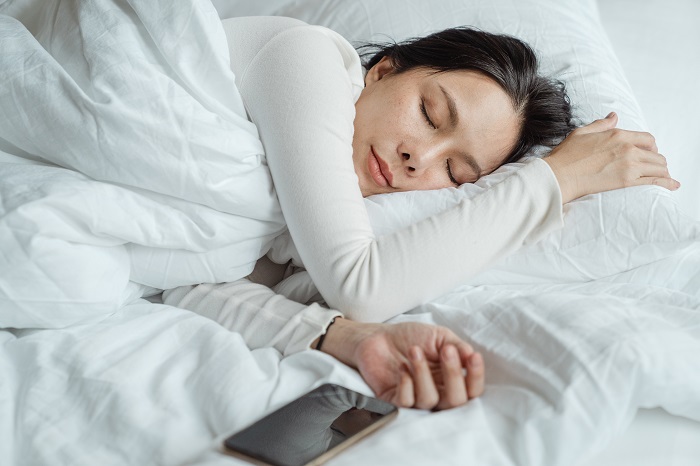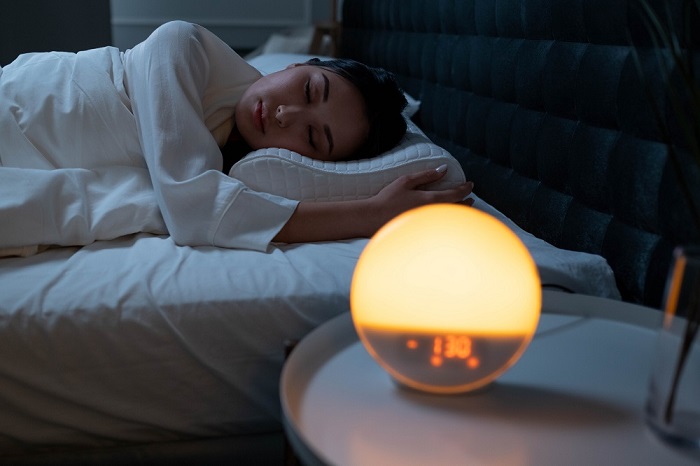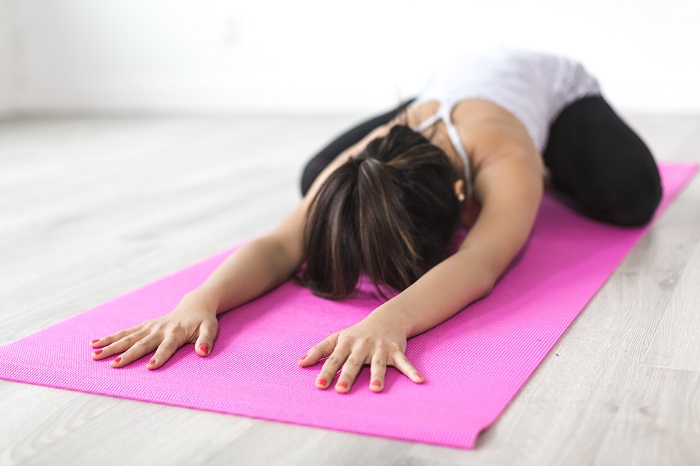Guest post by Emma Grace Brown
Sleep is a must-have for maintaining wellness, but reaching for medication isn’t always a good answer. Through various lifestyle changes, most people can ensure a healthy amount of slumber. Fashion Corner invites you to read on to learn what can easily be tweaked to encourage better sleep each night.
Create Cozy Comfort
Many people have discomfort that hinders their ability to enjoy sound, restorative sleep.

This can stem from a number of different things, beginning with the bedding. A worn, lumpy, or sagging mattress can inhibit your sleep in some obvious ways, but on top of that, your mattress should mesh with your normal sleeping position. You should also take into account what is put on the mattress as well. Smooth sheets can help the sleeper stay cool and comfortable, and that should be topped with a quilt, duvet, or comforter that suits the season and climate.
Atmospheric Conditions
What is the bedroom’s general atmosphere like? Some situations are more conducive to sleep than others. The room should be dark and quiet, as well as free of distractions and clutter. Incoming light and noise can bother you whether you’re conscious of it or not, and the clutter can have you tossing and turning with feelings of anxiety.

Lowering the room temperature also appears to offer benefits. The Sleep Charity notes setting the thermostat between 16 and 18 degrees can help most people who are struggling to sleep. Try making adjustments until you find your most comfortable temp.
Beyond the Bedroom
Many people are surprised to learn their daytime habits can play a major role in whether they will sleep at night. However, several lifestyle choices can affect slumber, and one of the biggest players in how well people sleep is their activity level. The American Academy of Sleep Medicine explains that routine exercise, even light to moderate in intensity, can improve sleep. Yoga is particularly effective in helping people fall asleep faster and stay asleep longer.

Time spent outdoors is also a consideration. Exposure to sunlight can help properly reset an insomniac’s circadian rhythm, with 30 to 45 minutes in the bright morning sun being ideal. Seeing the sun is an important factor in this case, although there is also a benefit in skin exposure to sunlight. Some studies indicate that insufficient vitamin D can be linked to insomnia, so consider allowing some unprotected skin to absorb some rays.
Virtual Visitation
Do you get to sleep only to wake in the morning with a headache? Don’t feel rested even when you think you’ve slept? You might have a sleeping disorder, such as sleep apnea.

Your doctor can prescribe an at-home sleep test to help determine if breathing, or a lack of, is the culprit in your unrestful overnight hours. During this process, you are prescribed a machine that monitors your respiration. This wearable tech collects information and transmits it to your healthcare provider. The biggest benefit here is that, instead of trying to get comfy in a sleep study center, you can stay in your own bed.
This is just one type of technology that can get you back on track. If issues are found, other remote monitoring devices might be recommended.
Food for Thought
There are many myths surrounding the influence of eating habits on sleep. Many people think eating certain foods can lead to nightmares or that late-night meals contribute to weight gain. While there are no studies supporting those ideas, there are ways foods seem to influence sleep. Eating meals too close to bedtime can disrupt the circadian rhythm, and stimulating foods, such as caffeinated beverages, can inhibit sleep.

On the other hand, going to bed hungry could keep you awake. Thankfully, some foods might help encourage sleep. Bananas contain serotonin, dark red cherries appear to have anti-inflammatory properties, and walnuts contain melatonin, all of which might help you sleep. A well-chosen bedtime snack might be just the ticket for someone whose stomach is growling.
Bedtime Routine
Last but not least, those struggling to sleep often benefit from establishing a nighttime ritual. Following a pattern each night can tell the mind and body it’s time to unwind. Ideally, this will include relaxing activities such as listening to soothing music, journaling, and gentle yoga. Sorting ideas, releasing tension, and quieting your thoughts can help you settle in for the night.
There are several strategies to improve sleep without resorting to medication. Ensure a comfortable space, develop healthy habits, and embrace a soothing nighttime routine. There are medications to turn to when necessary, but natural methods can often alleviate insomnia.
